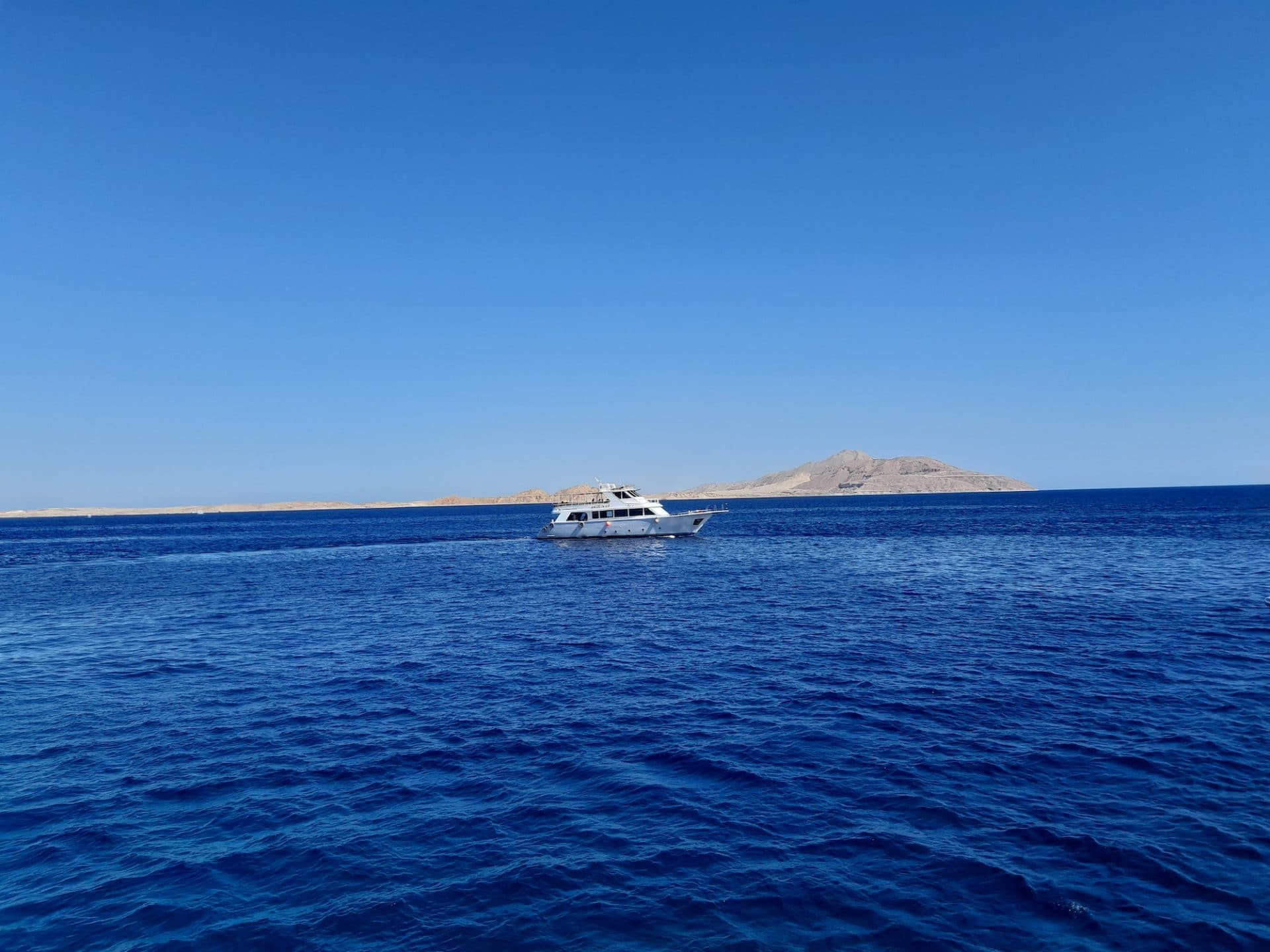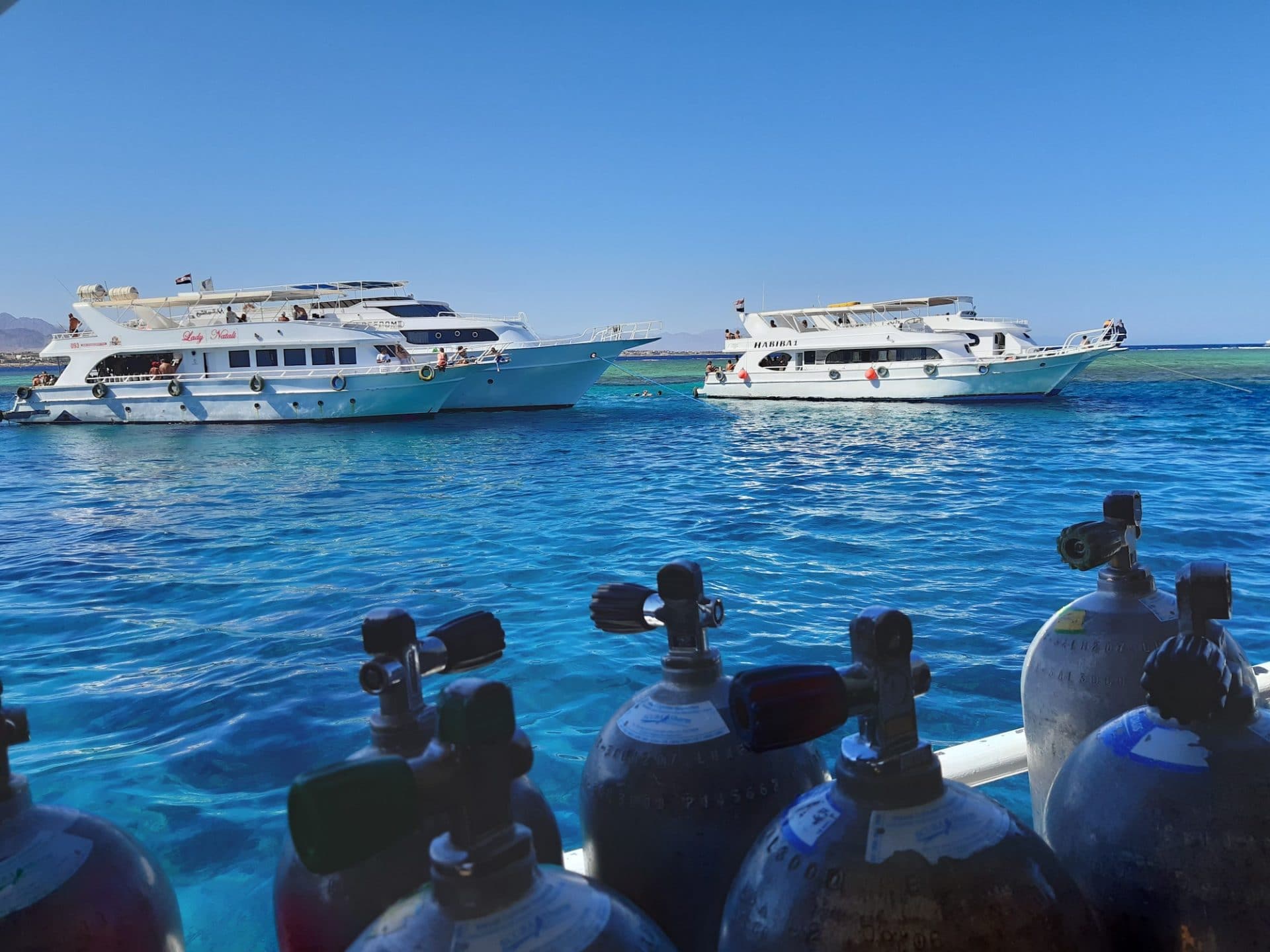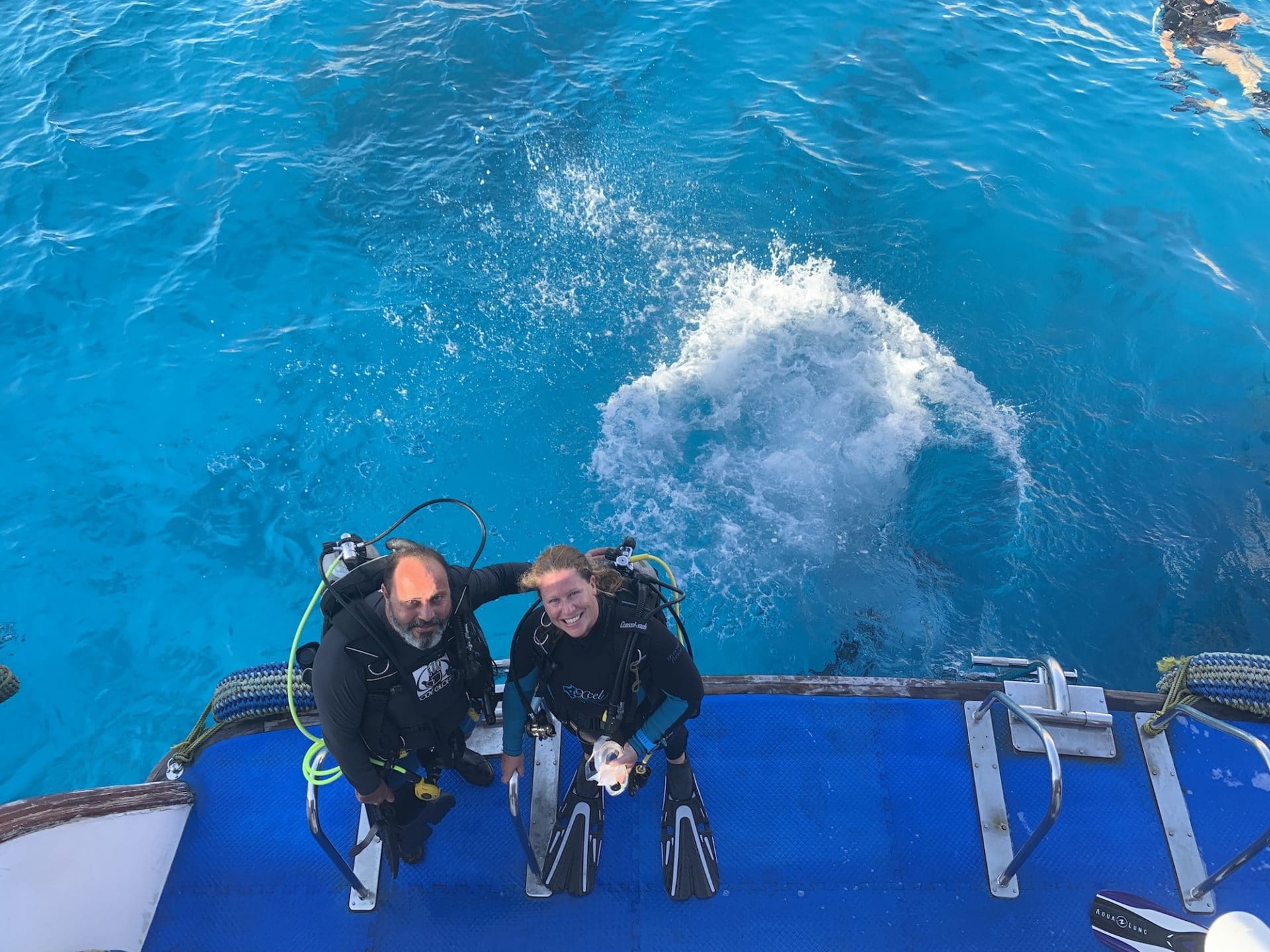Marine Life & Conservation
Egypt implements environmental standards to protect its coral reefs

The Reef-World Foundation and Chamber of Diving & Watersports (CDWS) have announced that Egypt is adopting Green Fins environmental standards to protect its coral reefs.
Through the implementation of the Green Fins initiative nationally (South Sinai Governorate from September and Red Sea Governorate from March), the Egyptian marine tourism industry is playing its part in protecting coral reefs from the negative impacts associated with diving and snorkelling.
The country has become the first in its region and the 11th worldwide to officially adopt Green Fins. Green Fins is one element of CDWS’ ambitious action plan to strengthen sustainability within the marine tourism sector across Egypt.
The initiative will be piloted in South Sinai Governorate and expanded to be available to all dive and snorkel operators nationwide by March 2020. Following a week of training by Reef-World (22-28 September 2019), Egypt now has a team of four Green Fins Assessors in South Sinai Governorate.
The Green Fins Assessor team is comprised of CDWS representatives who are now certified to recruit, train and conduct assessments of new Green Fins members in the country. As such, dive operators in South Sinai Governorate are now able to register their interest in becoming a Green Fins member by contacting the Green Fins Team at CDWS by emailing egypt@greenfins.net.
The new assessors are now fully certified to provide training about the ecology and threats to coral reefs, simple and local everyday solutions to these threats and Green Fins’ environmental standards to dive and snorkel operators. The second phase of national introduction will see 4-5 more assessors trained in the Red Sea Governorate in March 2019 and CDWS is calling for interested operators in the region to sign up in advance.

Image: The Reef-World Foundation.
Egypt is a popular holiday destination with 11.3 million tourists visiting in 2018; up from 8.3 million in 2017. Of these, there are approximately 500 businesses providing diving and snorkelling activities in the Red Sea and an estimated three million divers and snorkellers visiting the region each year. The CDWS is rallying dive centres to join the Green Fins initiative to help improve their sustainability and prove they are following environmental best practice as a way of attracting eco-minded tourists.
Diving related damage to sensitive marine ecosystems, including coral reefs, is becoming an increasingly significant issue. This damage makes them less likely to survive other local and wider stressors, such as overfishing or plastic debris as well the effects of climate change, such as rising sea temperatures.
The Green Fins initiative helps identify and mitigate these risks by providing environmental consultation and support, based on robust individual assessments, to dive and snorkel operators. Reef-World hopes to significantly reduce negative environmental impacts on coral reefs in the Egypt by reaching 30 marine tourism operators, training 150 dive guides and raising awareness of sustainability best practice among 30,000 tourists during Green Fins’ first year of implementation.
To date, four Egyptian dive and snorkel operators have already joined the global network of nearly 600 trained and assessed Green Fins members. These are: Reef Oasis Dive Club, Water Land 3 Diving Centre, Diving and Discovery and Camel Dive Club and Resort. There has also been significant interest from other operators who have signed the membership form and are looking forward to their training and assessment. The CDWS aims to certify 30 dive centres in the coming year.

Hany George and Chloe Harvey prepare for a dive.
Chloe Harvey, Director at The Reef-World Foundation, said: “We’re proud to be helping protect Red Sea coral reefs by bringing Green Fins to Egypt; the first country in the Middle East and the 11th country worldwide to adopt the initiative. As one of the original global diving destinations, the diving community in Egypt has shaped the way we dive and travel today, so I’m really pleased to be working with them to lead the way in sustainability within our industry. In fact, I learned to dive here aged 12 which has dramatically influenced my life dramatically and the way I have developed the Green Fins programme as a whole.”
She continued: “Through Green Fins, dive and snorkel operators in the region can improve their environmental best practices and reduce their negative impact on coral reefs; helping to conserve these vital ecosystems for many generations to come. The programme is initially launching in South Sinai Governorate with the Red Sea Governorate to follow in March 2020 so we urge dive operators in both regions to get in touch if they are interested in proving they follow environmental best practice by achieving a Green Fins certification.”
Hesham Gabr, Chair of the Chamber of Diving & Watersports, said: “Fortunately, the Red Sea is blessed to have a pristine underwater world with crystal clear visibility, warm waters and a thriving aquatic ecosystem. From large, multi-coloured coral reef systems home to several fish species to the presence of the BIG underwater creatures, we are lucky to be the custodians of a naturally rich and beautiful environment. Since the start of the 2019 summer alone, we have already had multiple sightings of whale sharks, dolphins, manta rays, eagle rays, hammerheads, oceanic reef sharks and much, much more! It is so important that we protect and preserve the Red Sea’s exquisite marine life for future generations. As such, we are excited to promote environmental best practice to our members and help them reduce negative impacts on life under the sea, through the implementation of the Green Fins initiative.”
Ahmed el Wassief, Chair of the Egyptian Tourism Federation, said: “Sustainability is a crucial element of the Egypt Tourism Reform Program that Egypt is undertaking to improve the standards and the quality of both the touristic infrastructure and its human element. The effort will surely put Egyptian tourism at the forefront of Eastern Mediterranean destinations. And has so far resulted in Egypt being the fourth highest improvement in tourism competitiveness.”
The launch of Green Fins Egypt was made possible thanks to financing support from the United Nations Development Programme through its project – “Mainstreaming the conservation and sustainable use of biodiversity into the tourism development and operations in threatened ecosystems in Egypt.”
For more information, please visit www.reef-world.org, www.greenfins.net or www.cdws.travel. Dive and snorkel operators interested in signing up to Green Fins can find the membership application form at: www.greenfins.net/how-to-join.
Marine Life & Conservation
Paul Watson Released as Denmark Blocks Japan’s Extradition Bid

Renowned anti-whaling activist Paul Watson has been released from custody in Greenland after spending five months in detention. Denmark’s Justice Ministry rejected Japan’s request for his extradition, citing insufficient guarantees that his time already served in custody would be credited against any potential sentence.
The 74-year-old Canadian-American was arrested on July 21 in Nuuk, Greenland’s capital, when his ship docked to refuel. His arrest was based on a 2012 Japanese warrant related to a 2010 encounter in Antarctic waters. Japan alleged Watson obstructed operations and caused damage to a whaling research ship during efforts to disrupt illegal whaling. Watson has consistently denied these claims, maintaining his commitment to marine conservation.
Denmark, which oversees extradition matters for Greenland, concluded that while the legal conditions for extradition were met, the lack of assurances from Japan regarding time-served credit made extradition untenable.
In a video shared by his foundation, Watson expressed gratitude and relief, saying, “After five months, it’s good to be out… and good to know they’re not sending me to Japan.” He added that the most difficult part of his time in custody was being separated from his two young sons.
Watson is a pioneering figure in marine conservation, known for founding the Captain Paul Watson Foundation in 2022 after decades of activism with the Sea Shepherd Conservation Society. His bold efforts to defend marine life have earned him widespread support, including from celebrities and conservationists. His work has also been featured in the acclaimed reality TV series Whale Wars.
Watson’s lawyer, Jonas Christoffersen, praised the decision, stating, “We are happy and relieved that Paul Watson is now free.” He added that Watson is eager to reunite with his family and continue his vital work.
The arrest occurred while Watson’s vessel, the M/Y John Paul DeJoria, was en route to the North Pacific with a team of 26 volunteers to intercept a Japanese whaling ship. His foundation described the arrest as politically motivated and emphasized that Watson’s actions were focused on ending illegal whaling practices.
Japan resumed commercial whaling in 2019 after leaving the International Whaling Commission, asserting that whale meat is a cultural tradition. Conservationists, however, continue to challenge these practices, highlighting their impact on marine ecosystems.
Despite the challenges, Watson remains steadfast in his mission to protect marine life and bring attention to whaling practices. His dedication to ocean conservation has made him a globally respected advocate for the environment.
Marine Life & Conservation
12 Days of Zero-Waste Fish-mas

This holiday period, the Marine Conservation Society, the UK’s leading ocean membership charity, invites you to make some simple changes to eating fish this Christmas to help our seas.
Dr Kenneth Bodles, Head of Fisheries and Aquaculture at the Marine Conservation Society, said, “During the festive season, our consumption increases, but so does waste. Sustainability isn’t just about where food comes from – it’s also about how you use it. By reducing waste and making the most out of your seafood, you’re not only taking steps to be more ocean-friendly, but can also help to cut costs during what is often one of the most expensive times of the year”.
The Marine Conservation Society has compiled twelve tips on how to consume seafood sustainably with zero-waste this Christmas:
Buy whole fish instead of fillets
Instead of fillets, consider buying whole fish such as salmon, hake, or lemon sole. By adopting a “nose to tail” approach with cooking, whole-baked fish not only feeds a crowd, but also helps to minimise waste and maximise sustainability by using up every part of the animal, including bones, skin, and fat.
Make fish stock
Leftover fish bones or shells can be put to good use by boiling them to make a nourishing fish stock or bisque. This can be frozen and preserved for later use and makes for a flavourful base in a soup.
Make your own fish pâté
Avoid waste by turning leftover fish, such as smoked mackerel or salmon, into a delicious pâté by blending with cream cheese and lemon. Perfect when paired with crackers.
The sustainability of salmon and mackerel varies depending on where and how it is caught or farmed. For more information on green-rated options, check the charity’s Good Fish Guide.
Buy frozen
By purchasing seafood that is frozen or vacuum-packed, this helps to reduce waste by extending the shelf life of your food.
Fish pie
If you’re wondering what to do with leftover cooked fish, why not opt for a classic fish pie with mashed potatoes, leeks, and a cheesy sauce? A sure crowd pleaser on Boxing Day.
Use the head
Don’t forget the fish head! The meat is incredibly tender and flavourful. The charity recommends a cod’s head curry or recreating Fallow’s renowned cod’s head in siracha butter.
By stretching your ingredients further, not only is this a more sustainable way to enjoy seafood, but also cost-effective by repurposing leftovers and cooking creatively.
Boxing Day brunch
Mix leftover kippers or smoked salmon with scrambled eggs for a tasty, zero-waste, Boxing Day brunch.
For best choice, make sure you buy kippers, or herring, from the North Sea and the North Irish Sea.
Zero-waste storage
A top tip from the Marine Conservation Society to avoid waste is freezing fish offcuts to save for future use.
Crisp up the skin
Even leftover fish skin can be turned into a quick savoury snack by crisping it up in an air fryer with a little olive oil and salt.
Anchovies two ways
Leftover anchovies can either be blended with butter to make a delicious anchovy butter or tossed into pasta for a hit of umami flavour.
The charity recommends opting for anchovies caught in the Bay of Biscay for best choice.
Fishcakes
For an easy, zero-waste meal, leftover seafood trimmings can be mixed with mash and fried in breadcrumbs to make fishcakes.
Pickled mussels
Try pickling mussels in 1:1 vinegar and water, with a dash of sugar for a sustainable, zero-waste snack that can be enjoyed well beyond the festive season.
Mussels farmed in the UK are a seafood superhero. Grown using low-impact methods and harvested by hand, they get all the food they need from the sea around them. This makes them one of the most sustainable, ocean-friendly, and cost-effective seafood options.
Players of People’s Postcode Lottery have raised £6.6M towards the Marine Conservation Society’s vital work in making seafood more sustainable.
Laura Chow, Head of Charities at People’s Postcode Lottery, said: “Fish is a festive favourite for many, but making sustainable choices when it comes to how we buy and eat seafood makes all the difference for our ocean. Support from players of People’s Postcode Lottery has helped the Marine Conservation Society further its sustainable seafood work, so that we can all enjoy healthier, better protected seas.”
The Marine Conservation Society encourages you to make sustainable seafood choices a year-round habit, not just for Christmas. To check how sustainable the seafood on your plate is, you can visit the charity’s Good Fish Guide. The Guide helps consumers and businesses identify the most sustainable seafood using a simple traffic light system, based on where and how species are caught or farmed. Green is the best choice, amber means improvements are needed, and red indicates fish to avoid buying.
Zero-waste gift idea
Why not embrace a zero-waste Christmas by gifting a membership to support marine conservation? It’s a meaningful, low-waste gift that helps protect our ocean for generations to come. Memberships start from as little as £5 a month – the price of a sandwich and drink from your local coffee shop.
Find the latest sustainable seafood advice for wild-caught and farmed seafood on the Good Fish Guide, downloadable to your phone from www.mcsuk.org/goodfishguide.
-

 News3 months ago
News3 months agoIconic SS United States to become the World’s Largest Artificial Reef
-

 Blogs2 months ago
Blogs2 months agoScubaverse Christmas Gift Guide 2024: Day 4
-

 News2 months ago
News2 months agoSanta Divers take the Plunge for Charity
-

 Blogs2 months ago
Blogs2 months agoScubaverse Christmas Gift Guide 2024: Day 1
-

 News3 months ago
News3 months agoDiscover Turquoise Divers and Media Luna Beach & Dive Resort: A Premier Diving and Relaxation Destination in Roatan
-

 Blogs2 months ago
Blogs2 months agoScubaverse Christmas Gift Guide 2024: Day 5
-

 Blogs2 months ago
Blogs2 months agoScubaverse Christmas Gift Guide 2024: Day 2
-

 News3 months ago
News3 months agoToucan Diving at Plaza Beach and Dive Resort Bonaire Introduces PADI Mermaid Training



